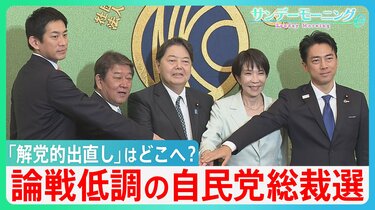As the contest for the Japanese party leadership heats up, there are hints of a possible "dissolution and reset" of the incumbent party - a move that would mean a complete reshuffling of party leaders and policies. This shift is an implication of internal turmoil and disagreements within the party ranks, a phenomenon that reflects the increasingly contentious political climate in Japan. The article further delves into - who is driving these changes, the potential effects of reshuffling, and the future of the current political landscape.
Leadership battles and potential party reshuffling are significant events in Japanese politics. The Japanese public is highly conscious of such changes as they can dramatically shape the direction of national policy decisions and reforms. This news might trigger extensive discussions and debates in numerous strategically segmented areas.
In comparison, the US has a system where leadership is fixed for a designated term and reshuffles aren't allowed unless through the impeachment process or unforeseen circumstances. In the European Union, similar measures can transpire, though the specifics vary by country.

